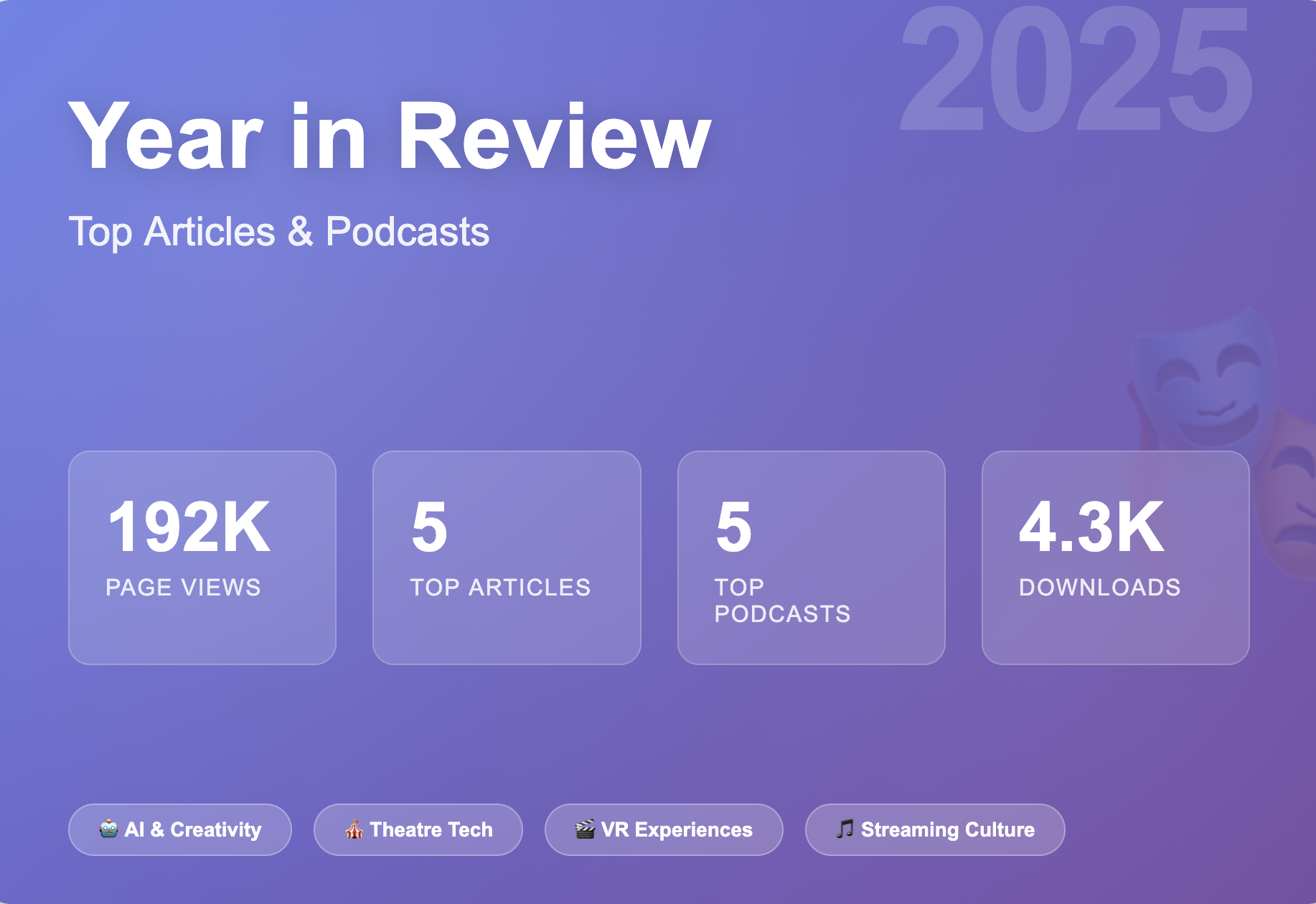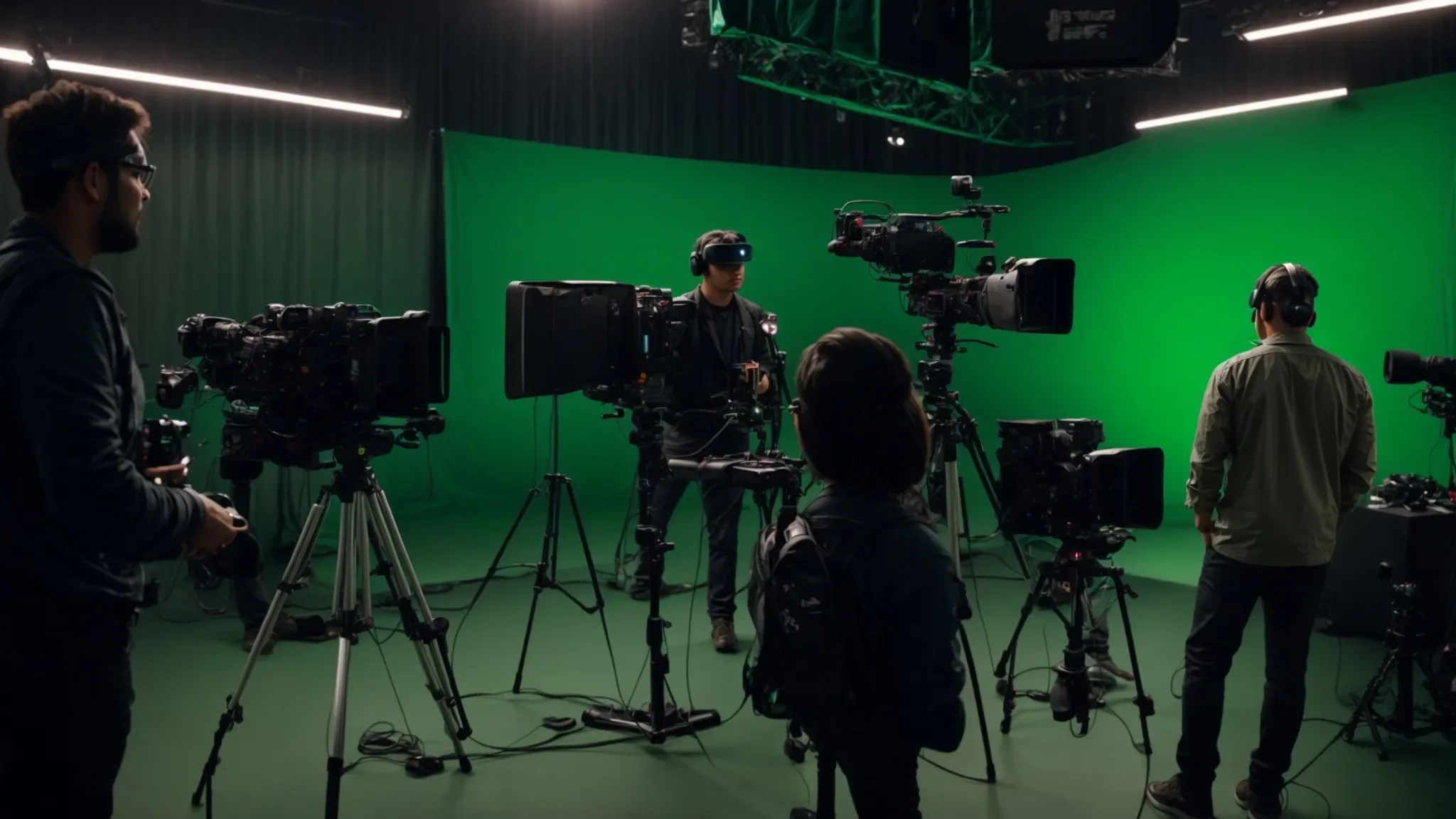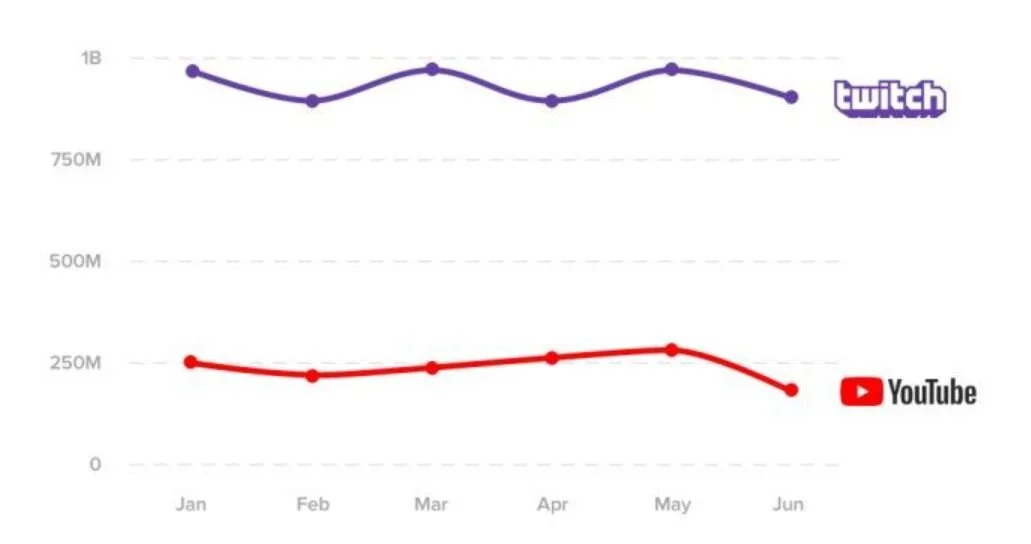As technology continues to reshape the arts and entertainment landscape, our readers and listeners have shown a clear appetite for understanding these transformations. From AI's role in creative processes to the evolution of virtual reality and streaming, this year's most popular content reveals the questions on everyone's minds.
Advertising Monopolies, AI Policy, and Pirating Issues
This spring, we saw major movements in the legal landscape of digital advertising. Between Google being ruled as an advertising monopolist and Mark Zuckerberg’s war on creative materials, digital advertising is gearing up for change. Read on for more information, including pirating issues, new ambitions for VR movies, and increased access to AI image generation.
Data Cultures Part I: The Many Markets of Arts Organizations
Arts and cultural nonprofits often operate in multiple markets for earned and contributed revenue. With increasing attention on data-driven decision making, effective market orientation often depends on effective data use. This fundamental collection, transmission, use, and interpretation of data within an organization collectively contributes to what can be considered an organization’s data culture.
How Generative AI is Impacting Digital Marketing
Generative AI (GenAI) has become increasingly integrated into marketing and communication careers, and even our daily lives, with the rise of various text-to-image, text-to-video, & text-to-text tools. As digital marketers find new and innovative ways to keep up with the trends, and specifically GenZ in a quick-changing popular culture scene, how are they reacting to the rise of GenAI?
Leveling Up Together: Inclusive Marketing Strategies for a Diverse Gaming Community
Research by a Master of Entertainment Industry Management team examined the current gaming landscape, allowing their video game marketing client, Cheat Code (a division of Omelet) to develop effective strategies that resonate with the diverse audience of midcore and hardcore games. They found that Diversity, Equity, and Inclusion (DEI) initiatives incorporated by a gaming company can increase players' willingness to participate in the communities.
How NFTs Have Changed the Creator Economy
Content creators have thrived on Web2 platforms such as Youtube, Instagram, and Twitter. However, with the latest addition of platforms such as Twitch and Patreon, curating content has been enhanced by enabling direct creator-to-fan content and new methods of monetization. The implementation of Web3 technologies, more specifically non-fungible tokens (NFTs) are revolutionizing the way creators distribute content, claim ownership, and monetize work.
The Challenge to Keep Millennials and Gen Z Interested in Long-Form, High Quality Content: Part One
Millennial and Gen Z consumers have forever altered the entertainment landscape. Shifts in their viewing habits are being motivated by a sense of community, increasingly short attention spans, and pragmatic decision-making spurred by coming of age in a digital and internet-driven environment. To fulfill these motivations, they have increasingly turned their attention to short-form content. this article offers insights on how and why Gen Z and Millennial consumers watch content.
The State of Trust: Consumers and Transparency in the Entertainment Industry
The business of trust is complicated. The topics of trust, authenticity, and transparency have emerged as what consumers expect from businesses today (MultiVu - PR Newswire, 2020). This study looks at the entertainment industry and how these topics are central to the relationship between media and entertainment companies and consumers. Findings reveal simple but pivotal changes businesses can make to succeed.
Part 2: The Movie Ticket Purchase Pathway
As noted in part one, the key to rebuilding the post-pandemic movie theatre audience will be to understand the key influences on the purchase pathway. As previous research detailed, there are frameworks of influence that movie makers and marketers need to understand, notably marketing communications, sources of neutral information, film characteristics, and ease. This post includes an analysis of survey results and recommendations for attracting ticket buyers based on these frameworks.
What Motivates Movie Theater Attendance? Part 1
Digital Network Strategies for Nonprofits
This article will look at three companies, an established ‘big fish’ company, a late entrant to the market, and a ‘blue ocean’ company. Blue Ocean refers to the idea that a new marketplace with untapped potential can exist between two common marketplaces and one can create their own supply and demand. The companies this article will look at are; Twitch.tv, Mixer.tv, and Voxpop Games.
A Guide to Understanding Digital Network Interactions
The transition from physical to digital content is progressing unevenly in the United States, where those with advanced technology capabilities and capital are capturing a disparate share of the economic gains. Companies that are benefiting from these disparate gains in market share are also shaping the market to benefit their industry. The transition to digital content is important to understand as it is rapidly changing companies’ business models. This is particularly true for arts institutions in the post-Covid-19 era.
Google Suite’s Top Features for Maximizing Analytics
Google Analytics is an indispensable tool for any business to better serve its customers, achieve business goals, and build successful marketing campaigns. Used by itself, analytics is a powerful tool that can help an organization optimize its website and customer pathways. However, integrating additional tools within the Google Suite of tools offers more nuanced and informative means of maximizing data integration and your understanding of your institution’s website connections and conversion. This research report gives a how to for 7 critical Google Suite tools to maximize Google Analytics impact.
Integrating Social Media Data Into CRM Systems: Using Your CRM To Its Full Potential
This white paper explores the importance of integrating social media data into an organization’s CRM to improve Customer Knowledge Management (CKM). By increasing the information collected CRMs can be more effective, leading to greater efficiency and productivity. Learn how arts organizations can gather more data to better understand their customers by integrating social media into a CRM system.
Best Practices in Website Redesign: Inside AMT Lab's Refresh
It Isn't So Hard to Connect Social Media Data with Your CRM System
Wading Into Live Streaming with Facebook Live
Live streaming has become a popular trend for performing arts organizations, and many have turned to Facebook to broadcast their shows. Many organizations may find it beneficial to start their live streaming journey with Facebook Live, continue to use the platform for events that are likely to attract a lot of Facebook users, and invest in higher quality live streaming services as they grow.
New White Paper: Open Data and Data Visualization in Arts Organizations
Data collection and communication is an essential tool for effectively managing arts organizations. Data visualization techniques can reveal organizational or industry insights in a manner which is easy for managers to understand and communicate to their stakeholders. Explore sources for open source data, and low cost, high impact data visualization tools in this new white paper.
Nonprofit Technology Conference #18NTC
NTEN's annual conference is always a special treat. Vendors and attendees all focused on making the world a better place while investigating the appropriate role technology plays in that transformation. With 144 sessions plus keynotes, Birds of a Feather lunch tables, Ignite talks and pre-conference workshops, to say the conference is robust is an understatement. The following are my main take-away from the conference, but if you are curious for more, be sure to check out their social channels with hashtag #18NTC.























